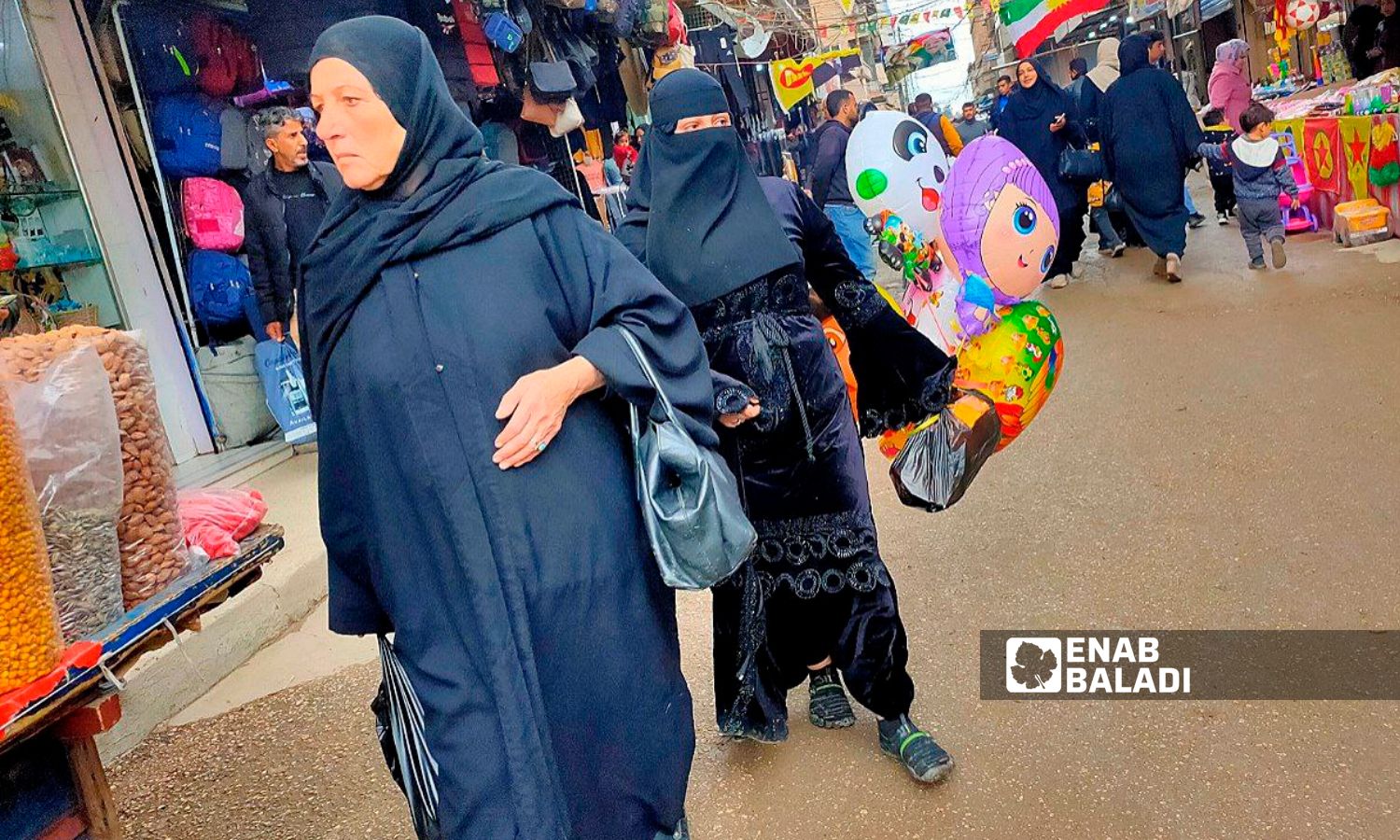



Al-Hasakah – Majd al-Salem
With the advent of Ramadan, individual and collective initiatives have emerged aiming to relieve “as much as possible” the financial burden on poor and needy families in al-Hasakah governorate.
These initiatives help on both the service and livelihood levels, as their organizers ensure the provision of food and cash assistance.
Ibrahim Mohamed, a participant in one of the initiatives and a resident of Qamishli, mentioned that these initiatives, especially during Ramadan, contribute to reducing people’s burdens, even if temporarily, as they make a significant difference at least in providing some of Ramadan’s necessities.
He added that his activity with others targeted rural needy families and may expand to include families living in cities in the future, according to what he told Enab Baladi.
Mohamed pointed out that he and a group of his comrades managed to distribute two million Syrian pounds to each family, a few days before the arrival of Ramadan, and with the start of the month, they distributed food baskets containing foodstuffs including sugar, rice, oil, bulgur, and a pack of dates.
He clarified that his role with a group of Qamishli youth was only coordination and assistance, while the main donor was a businessman expatriate who hails from al-Hasakah and resides in the UAE.
The relief activity in these initiatives is not limited to cash and in-kind assistance, as some residents of the province took the initiative to offer service contributions throughout Ramadan.
Among those who offered their services was Hamd al-Hajj (35 years old), a taxi driver in Qamishli, who told Enab Baladi that he, along with other drivers, offered free delivery service for emergency cases faced by city residents throughout Ramadan.
Al-Hajj believes that the cost of transportation has recently increased due to the scarcity of fuel, which posed difficulties for residents in the cost of commuting, which motivated him to launch this initiative with other drivers.
In normal times, the taxi fare reaches 15,000 Syrian pounds during the day, and at night it could reach about 40,000 pounds, which is considered high currently, and some drivers refuse to work at night, hence the idea, which is to deliver emergency night cases for free, according to al-Hajj.
The idea of the initiative was well received, according to al-Hajj, and many residents of Alaya neighborhood, where the young man lives, benefited from it, as he was assisting in nighttime ambulance operations for the neighborhood’s residents.
Enab Baladi also monitored online initiatives through local media or social media platforms, aiming to help residents of al-Hasakah governorate with poor living conditions.
A group of expatriate youths, from Tal Hajar neighborhood in al-Hasakah, managed through a Facebook group to distribute 600 food baskets in Qamishli, Amuda, and al-Hasakah, targeting families without a breadwinner.
According to what the campaign published on Facebook, it relies on donations sent by expatriate young men and women in Europe from the residents of Tal Hajar neighborhood mainly and other neighborhoods.
Hani Abbas from al-Mahatta neighborhood in Qamishli, one of the benefactors from the periodic campaigns launched during Ramadan, told Enab Baladi that one philanthropist distributed food baskets to needy families, including meats, considering it a positive step given the poor living conditions suffered by the residents of the area.
He added that he personally knows some families that would not have been able to buy Ramadan necessities “due to their extreme poverty” were it not for this kind of assistance, as some received two food baskets.
With the difficult economic conditions and the depreciation of the Syrian pound, residents of al-Hasakah with limited income and poor families find it difficult to secure Ramadan expenses, which forces them to rely on assistance and donations, some of which come from expatriates from the region.
Ibrahim al-Mohammad (40 years old), an employee at a money transfer company in Qamishli, told Enab Baladi that the volume of externally sourced transfers doubled “very significantly” with the start of Ramadan, due to donation campaigns held in the area.
According to the estimates of the United Nations High Commissioner for Refugees (UNHCR), the number of people in need of humanitarian assistance in Syria reached more than 16 million in 2024, an increase of up to 9% on the previous year.
Among the challenges faced by residents in Syria is food insecurity, with about 55% of the population, or nearly 13 million people, suffering from this problem, and the situation worsens for more than three million people who suffer severely from food insecurity, requiring urgent intervention to meet their basic food needs.
if you think the article contain wrong information or you have additional details Send Correction